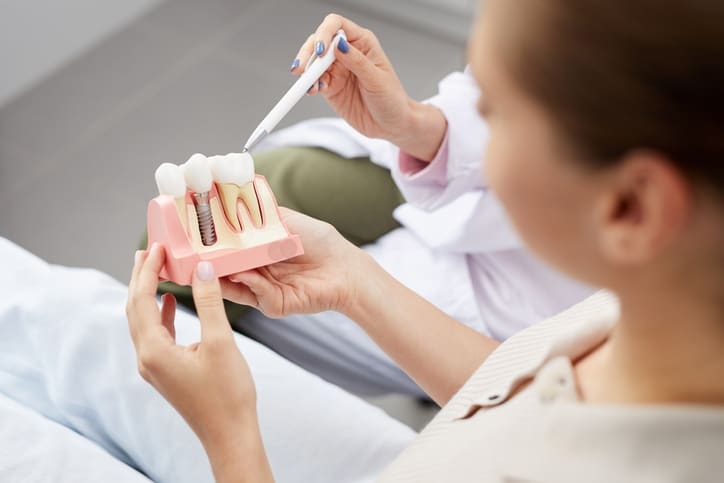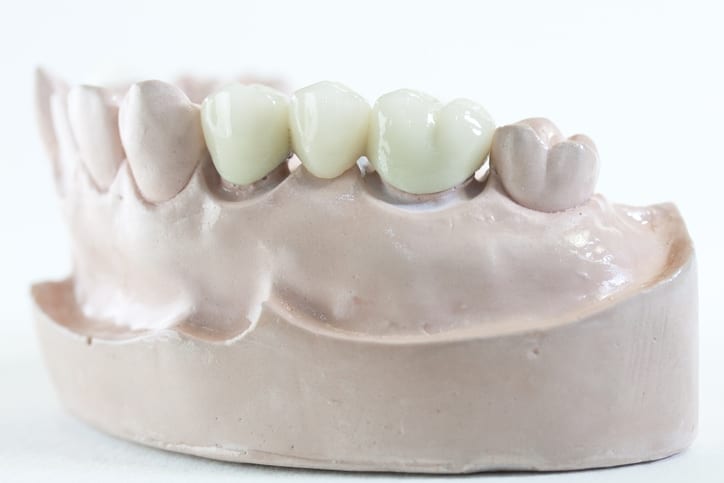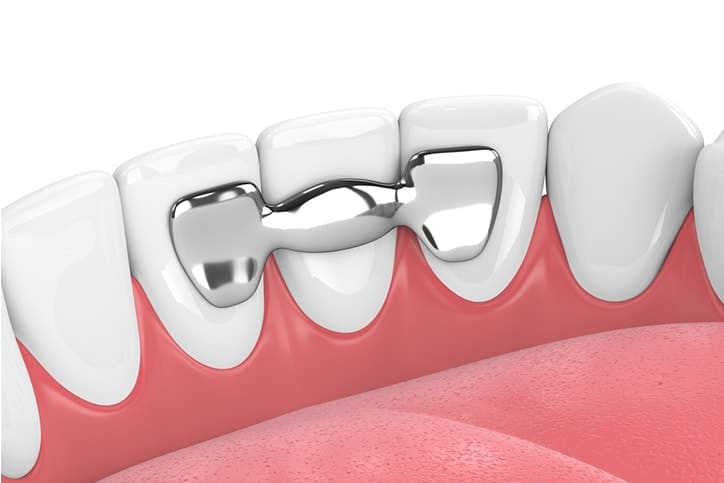Losing a tooth can be more than an aesthetic nightmare or a blow to your self-confidence. A missing tooth can create major oral health issues, including gum infection, loss of other teeth and bite adjustment. Two of the most popular replacements for missing teeth are bridges and dental implants. Both are a solution for missing teeth, but they are technically different. To choose between getting a bridge or a dental implant, you will need to understand each treatment option’s fundamentals. Here’s how to decide whether a bridge or a dental implant is better for your needs:

Dental Implant
First, it’s important to note that dental implants replace the entire underlying structure instead of just the tooth. The structure includes the nerves, bone and ligaments. It replaces this structure by implanting a metal (usually titanium) post into the jaw bone. Once it’s been implanted, you will have to wait several months for osseointegration to occur. This process involves new bone growing around the metal post. Once the structure is secure, one of our experienced dentists will screw a crown (perfectly matched to your natural teeth) into the post and sealed in place.

All-on-4 Dental Implants
At Dental Implants Clinic, we specialize in dental implants, and we additionally offer All-on-4 dental implants, an innovative alternative to dentures. In this process, a set of prosthetic teeth are screwed into four implants in either the lower or upper jawbone. This procedure is also known as “teeth-in-a-day” as it only takes one appointment to have an entire arch of natural-looking teeth!
Dental Implant Advantages
One of the pros of dental implants is that they help to support the surrounding teeth while promoting a healthy jaw, bone structure and gums. Dental implants additionally are likely to last a lifetime.
Dental Implant Disadvantages
One of the cons of dental implants is the price. Our dental implants start at $895. If you have several individual teeth that need to be replaced throughout your mouth, it can be a costly treatment. When patients need to replace a large number of teeth, we will likely recommend a dental bridge or our All-On-4 dental implant.
Another con of dental implants is the time. Dental implants typically take multiple procedures to complete. Patients will usually require oral surgery like bone grafting, which will require months of healing. Inversely, dental bridges typically only take a few weeks to complete.
Dental Bridge
A dental bridge (or a pontic) creates a bridge across the gap where a patient is missing a tooth or teeth. It attaches to the natural teeth on either side of the gap. In some instances, the surrounding (or abutment) teeth may need to be shaved down to accommodate the bridge. Then a cap (typically made of porcelain) accompanying the bridge replaces the missing tooth or missing teeth. Typically, when patients are only replacing one tooth, our dentist will use a bridge embedded into the surrounding teeth.

Types of Dental Bridges
Traditional
This is the most popular type of dental bridge where a false tooth is held in place by crowns that have been cemented onto the abutment teeth.
Cantilever
A cantilever bridge is secured into place with a crown cemented onto one abutment tooth.
Maryland
A Maryland bridge uses two abutment teeth on either side of the missing tooth. This bridge is bonded onto the backs of the abutment teeth.

Dental Bridge Advantages
One of the pros of dental bridges is the price. It is perhaps the most cost-efficient way to replace missing teeth. Another pro is that patients won’t require bone grafting, unlike dental implants, making it a quicker process.
Dental Bridge Disadvantages
One is the most prevalent cons of dental bridges is that they place a lot of pressure on the neighbouring teeth attached to the device. This pressure means the bridges will not be as long-lasting as dental implants. Also, unlike dental implants, they don’t replace the tooth’s underlying structure, leading to bone loss issues in the future. When these issues are not addressed, and the bridge is not adequately maintained, patients can lose more teeth.
So, Should You Get A Bridge or a Dental Implant?
Now that you are aware of the details, advantages, and disadvantages of both bridges and dental implants, the best thing to do is talk to a dental professional about the best treatment for you. The experienced dentists at Dental Implants Clinic will listen to all of your concerns and answer all of your questions before offering you a recommendation. Contact us to book a free initial consultation to discuss tooth replacement options.